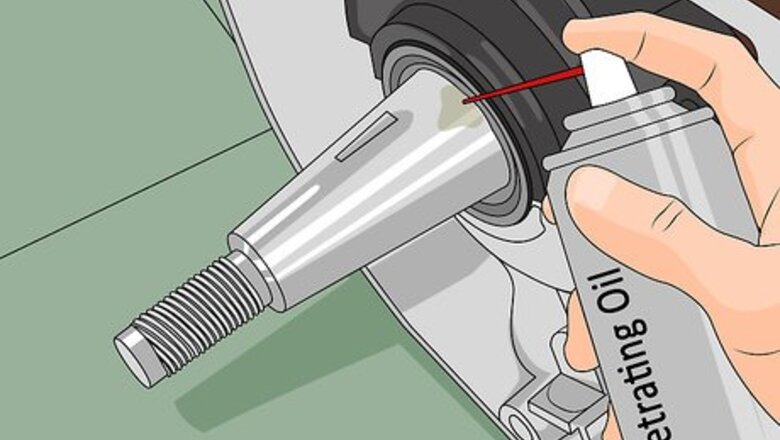
views
X
Research source
Removing Keys by Hand
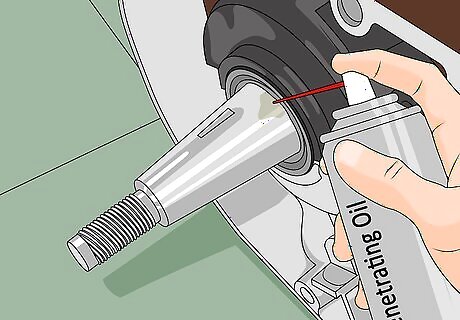
Apply penetrating oil. Put this directly onto the pulley and shaft area to loosen any corrosion that will make the pulley hard to move.Those that come in spray bottles are handy and will still be effective for getting into and breaking up rust on metal.
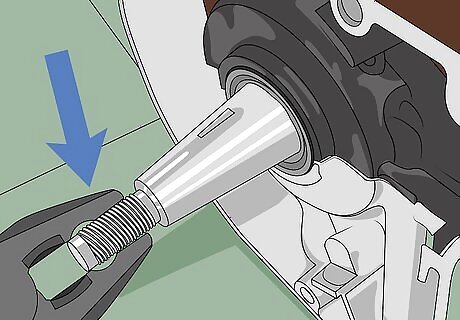
Remove the threaded fastener. This holds the pulley in place and can be undone with a tool such as a crank remover or wrench. If the threads are damaged, more tools and methods will have to be utilized, such as pliers.
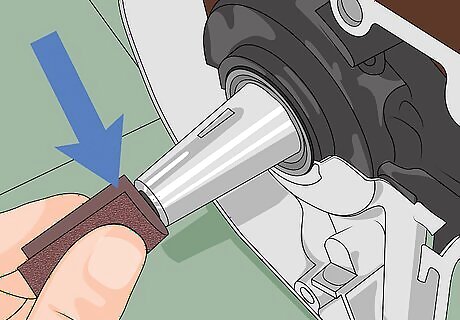
Clean the shaft. If there is any rust or dirt on the shaft, lightly sand or brush it. The hub of the pulley usually is fit well to the shaft, so the debris can prevent a loosened pulley from sliding off.
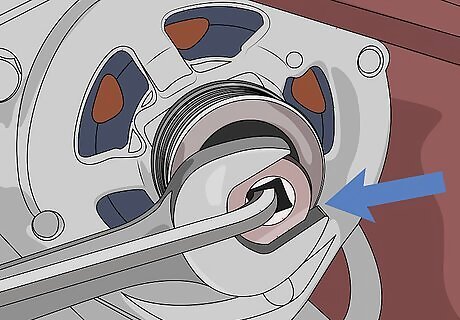
Loosen the pulley nut. Do whatever you can to stop the pulley from turning, then use a tool such as a socket or ring spanner on the nut until the pulley can be removed.
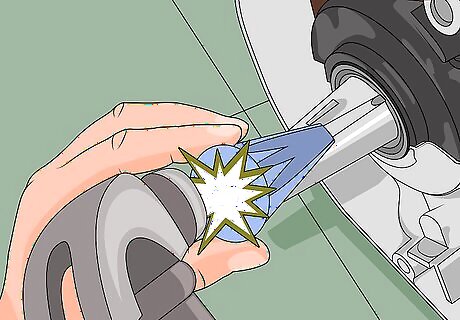
Pry off the pulley. Place a pry bar or a large screwdriver behind the pulley, if there is a surface behind it to use as leverage. If not, you can try striking the back of the pulley with a hammer while applying pressure with the pry bar or screwdriver. Use a soft-faced hammer to avoid damaging the components. If you use a normal hammer, hold a wood block against the fastener and shaft. Tap the pulley shaft with the hammer. Don’t use too much pressure. For steel hammers, insulate the shaft, nut, and bolt before striking.
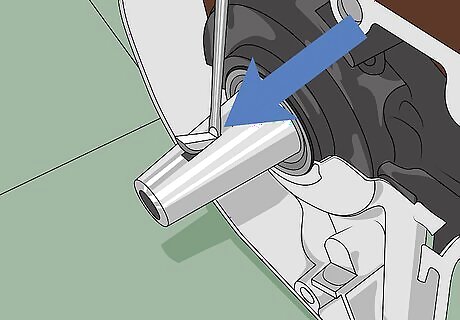
Take out the key. On the now freed pulley, look for a semicircular piece inset into the shaft. This is the Woodruff key. Grip the sides of the key with pliers and remove it. If pliers don’t work, try to wedge it out with a small screwdriver. These keys are delicate, so force can easily damage them, but keys are easily and cheaply ordered in hardware and auto part stores or online and replaced. Remove any shredded key bits in the machine so they don’t cause damage later. You can try tapping a nail on one end of the key, drilling into the center of the key and removing it with a nail, or even heating the key up with a blowtorch and letting it cool repeatedly to loosen it. Remember that damaging the key is a far better alternative than damaging the shaft or other part around the key.
Using a Gear Puller
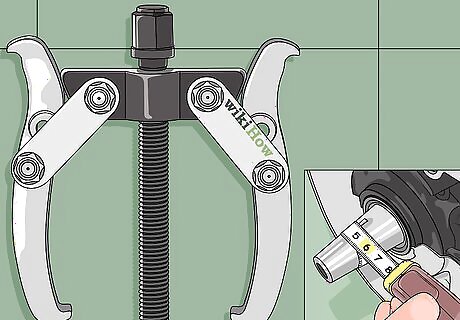
Select the right size. These claw-like devices come in different sizes. You can use measuring tape to find out the diameter of the pulley so that you can buy or rent one that expands to fit over the pulley. You’ll need an appropriate socket wrench to adjust the forcing screw on the gear puller.
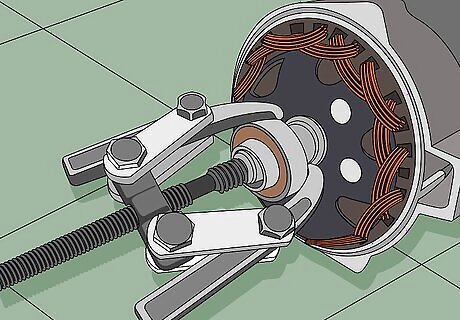
Fit the arms. Once the gear puller is set, the center bolt should engage the pulley shaft in proper alignment to prevent slippage. Adjust the arms so that the puller’s jaws are set at about right angles against the pulley or gear.
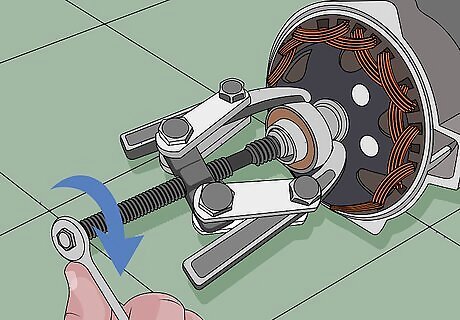
Tighten the forcing screw. Use the socket wrench to tighten the screw at the end of the gear puller until the screw touches the pulley shaft. Continue turning until the pulley can slide free. You can strike the exposed end of the gear puller with a hammer to try to loosen the pulley.
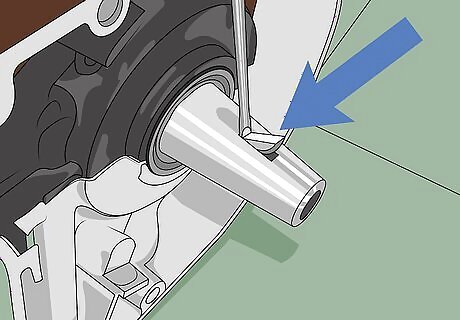
Remove the Woodruff key. On the freed pulley, locate the semicircular shape in the shaft. This is the key and it can be removed by gripping the sides with pliers or wedging one end with a screwdriver. The key may be stuck. If that is the case, alternative and possibly damaging measures need to be taken. Remember to remove any shredded key bits. Try tapping down on one end of the key with a hammer and nail. Another option is to drill into the center of the key and remove it with a nail. Rapidly heating the key with a blowtorch and letting it cool can help loosen it. Remember that these keys are cheap and readily available online or at hardware and auto part stores, so causing damage to it may be necessary. Damaging the parts around it is a more costly idea.




















Comments
0 comment